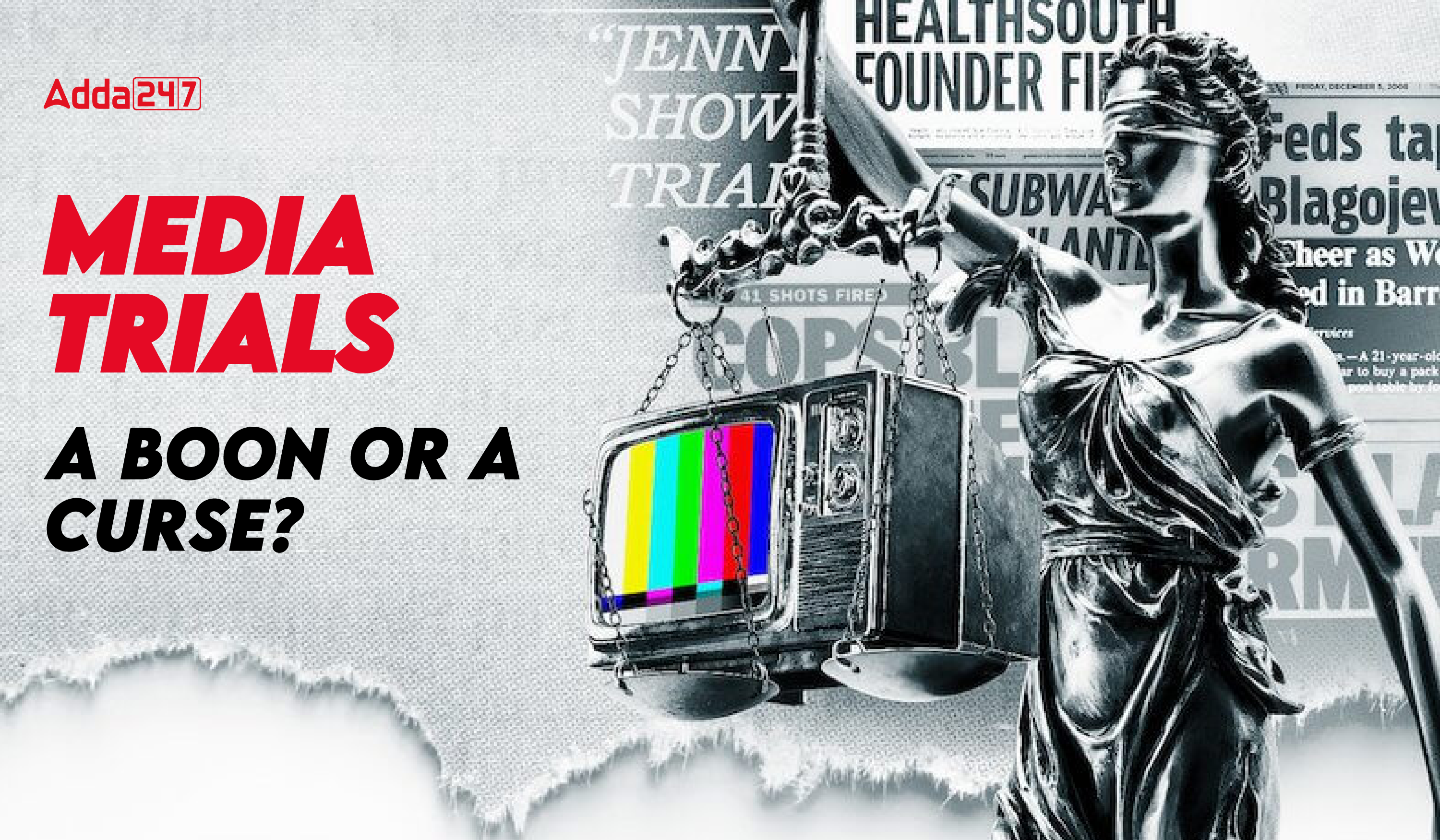Table of Contents
In India, Media trials have become a hot topic, raising serious concerns about their impact on the justice system and society. Media trials involve intense media coverage of legal cases, often influencing public opinion and potentially prejudicing the outcomes before the Court’s verdict. This phenomenon has sparked a debate on the balance between freedom of the press and the right to a fair trial.
What is a Media Trial?
A media trial is when the news and media cover a legal case so much that it shapes how people think about it before the Court makes a decision. This can make people believe someone is guilty or innocent just based on what they see in the news, not the actual Court verdict. This can interfere with the justice process and make it hard for the person involved to get a fair trial. This practice, while not defined legally, has significant implications for the justice system. The term “media trial” originated in the United States in the 19th century and became well-known in India during the infamous K.M. Nanavati case.
Also Read: Passive Euthanasia: Legal and Ethical
Role of Media in a Democracy
The media, often called the fourth pillar of democracy, plays a crucial role in informing the public, promoting transparency, and holding authorities accountable. However, this role comes with great responsibility. Sensationalized reporting, especially in high-profile cases, can blur the lines between journalism and judicial overreach, leading to media trials.
Media Trial Impact
-
On Legal Proceedings
Media trials can severely impact legal proceedings by creating a prejudgment of guilt in the public’s mind, which can influence juries and judges. The extensive and often biased coverage can make it difficult for the accused to receive a fair trial, violating the principle of “innocent until proven guilty.”
-
On Privacy and Mental Health
The intense scrutiny of media trials often invades the privacy of those involved, including the accused, victims, and their families. This invasion can lead to severe mental health issues, as individuals find themselves under constant public gaze and judgment, even before the Court reaches a verdict.
Judicial Perspectives on Media Trials
The Indian Judiciary has repeatedly emphasized the need for responsible media reporting. In the landmark case of R.K. Anand vs. Registrar, Delhi High Court, the Supreme Court noted that concurrent media trials have no legal standing and can conflict with the right to a fair trial. Similarly, in Shreya Singhal vs. Union of India, the Court stressed that while free speech is important, it should not cross boundaries and interfere with judicial proceedings.
Regulation of Media
To mitigate the adverse effects of media trials, there is a pressing need for ethical reporting. Media organizations must adopt stringent editorial policies that prioritize accuracy, objectivity, and respect for the legal process. The Press Council of India and other regulatory bodies must enforce guidelines to ensure that media coverage does not compromise the fairness of trials.
International Perspectives on Media Trial
In contrast, strict restrictions are in place in nations like the United Kingdom to prevent media meddling in legal proceedings. The UK’s Contempt of Court Act, 1981, for example, prohibits the publication of information that can harm court proceedings. While the First Amendment in the US guarantees freedom of speech, it also emphasizes how crucial it is to make sure that media coverage does not impede the administration of justice.
Conclusion
Media trials present a complex challenge in balancing the freedom of the press with the right to a fair trial. While the media plays a vital role in a democracy, it must exercise this freedom responsibly. Ensuring ethical journalism and respecting the judicial process are crucial to upholding justice and maintaining public trust in both the media and the legal system. Responsible media practices, supported by robust legal frameworks, can help navigate this delicate balance and protect the integrity of India’s democracy.
| Related Articles | |
| Cruelty in Marriage | |
| Animal Rights in India | |
| Right to a Speedy Trial | |



 TSPSC Group 1 Question Paper 2024, Downl...
TSPSC Group 1 Question Paper 2024, Downl...
 TSPSC Group 1 Answer key 2024 Out, Downl...
TSPSC Group 1 Answer key 2024 Out, Downl...
 UPSC Prelims 2024 Question Paper, Downlo...
UPSC Prelims 2024 Question Paper, Downlo...





